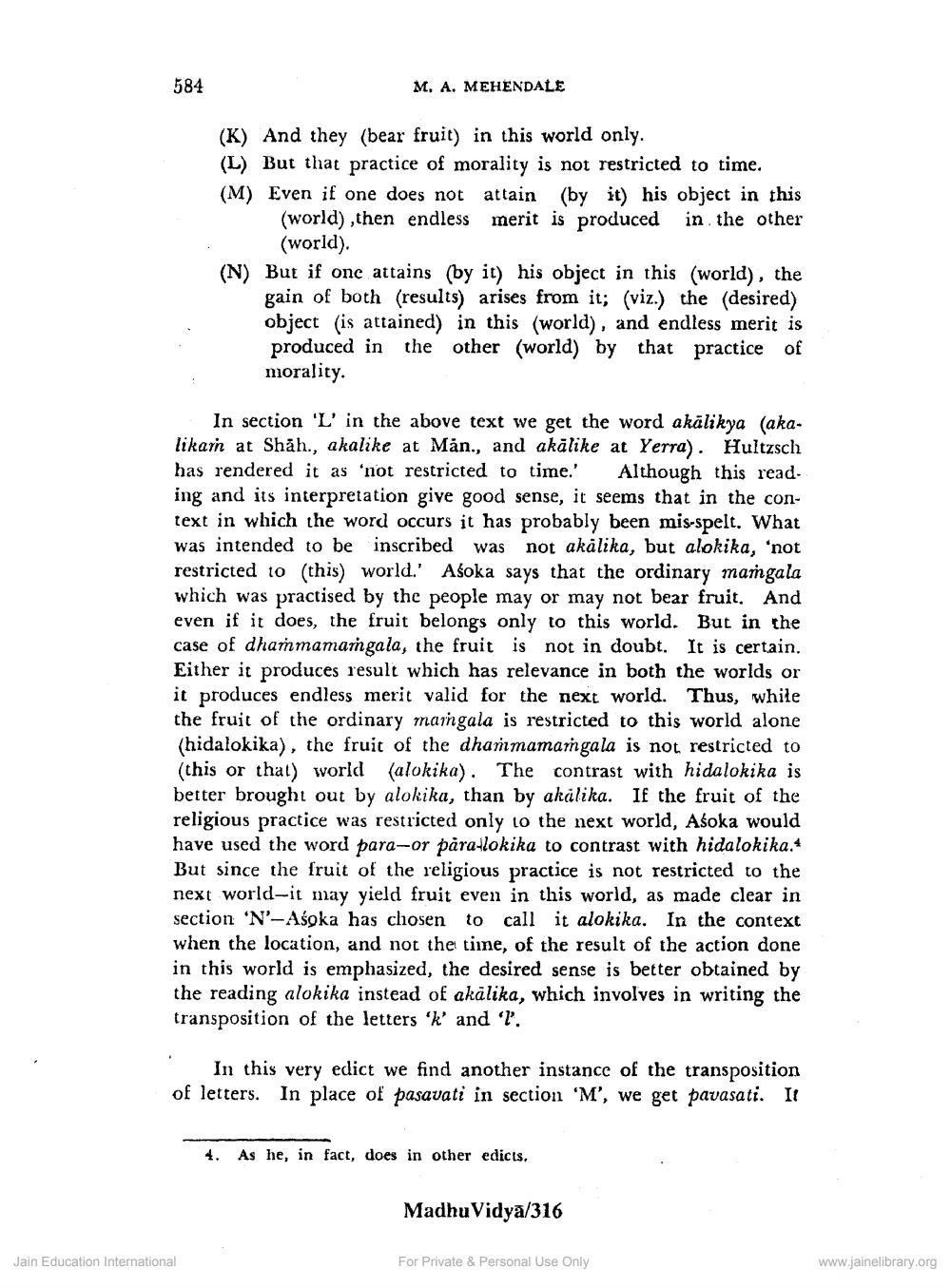________________
584
M. A. MEHENDALE
(K) And they (bear fruit) in this world only.
(L) But that practice of morality is not restricted to time. (M) Even if one does not attain attain (by it) his object in this (world), then endless merit is produced in the other (world).
(N) But if one attains (by it) his object in this (world), the gain of both (results) arises from it; (viz.) the (desired) object (is attained) in this (world), and endless merit is produced in the other (world) by that practice of morality.
In section 'L' in the above text we get the word akálikya (aka likam at Shah., akalike at Mån., and akalike at Yerra). Hultzsch has rendered it as 'not restricted to time.' Although this reading and its interpretation give good sense, it seems that in the context in which the word occurs it has probably been mis-spelt. What was intended to be inscribed was not akalika, but alokika, 'not restricted to (this) world. Aśoka says that the ordinary mathgala which was practised by the people may or may not bear fruit. And even if it does, the fruit belongs only to this world. But in the case of dhammamamgala, the fruit is not in doubt. It is certain. Either it produces result which has relevance in both the worlds or it produces endless merit valid for the next world. Thus, while the fruit of the ordinary mamgala is restricted to this world alone (hidalokika), the fruit of the dhammamaṁgala is not restricted to (this or that) world (alokika). The contrast with hidalokika is better brought out by alokika, than by akalika. If the fruit of the religious practice was restricted only to the next world, Aśoka would have used the word para-or para-lokika to contrast with hidalokika.* But since the fruit of the religious practice is not restricted to the next world-it may yield fruit even in this world, as made clear in section 'N'-Aśoka has chosen to call it alokika. In the context when the location, and not the time, of the result of the action done in this world is emphasized, the desired sense is better obtained by the reading alokika instead of akalika, which involves in writing the transposition of the letters 'k' and 'P.
Jain Education International
In this very edict we find another instance of the transposition of letters. In place of pasavati in section 'M', we get pavasati. It
4. As he, in fact, does in other edicts.
Madhu Vidya/316
For Private & Personal Use Only
www.jainelibrary.org




